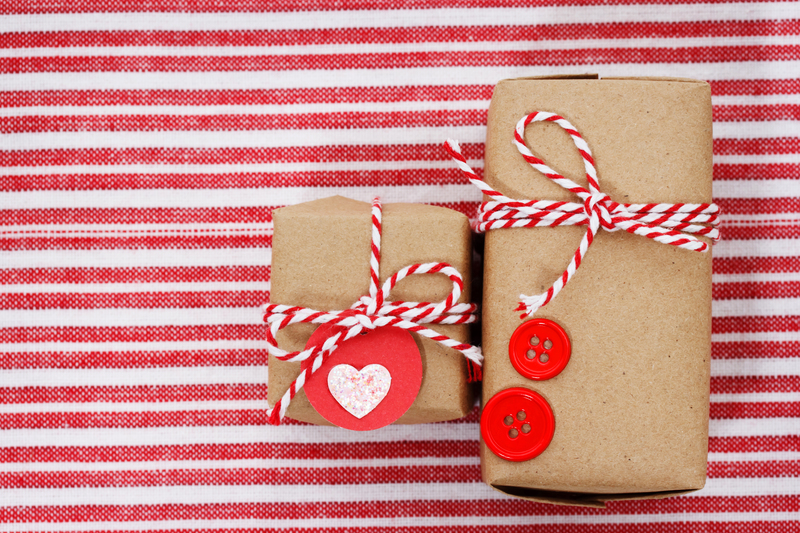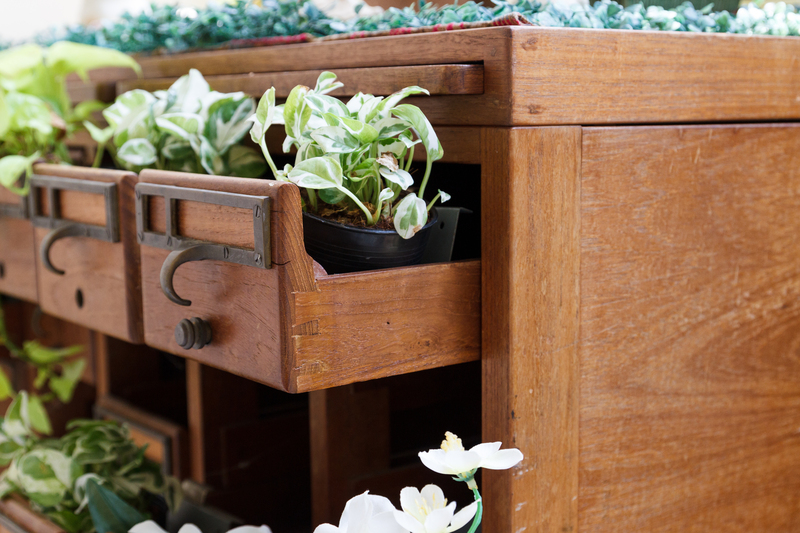Transform Old Cookware With These Recycling and Donation Tips
If you're staring at a pile of outdated pots, rusty pans, or dented baking trays, don't rush to toss them in the trash. Revitalizing your old cookware isn't just eco-friendly--it's an opportunity to declutter responsibly, support those in need, and even unleash your creativity. In this comprehensive guide, you'll discover everything you need to know about how to recycle, donate, and repurpose old cookware efficiently and sustainably.
Why You Shouldn't Just Throw Away Old Cookware
- Environmental Benefits: Landfills are overflowing, and metal waste from old pots and pans doesn't biodegrade easily. Recycling helps conserve resources and reduces pollution.
- Supporting Those in Need: Donating still-functional cookware can directly impact families and organizations that lack basic kitchen tools.
- Unleashing Creativity: Repurposed cookware can be transformed into planters, organizers, or unique art pieces.

How to Assess Your Old Cookware
Before deciding whether to donate, recycle, or reuse your old cookware, take a moment to assess its condition:
- Is it Still Functional? -- If your kitchen gear can be cleaned and used safely, donation or reuse is ideal.
- Material Type -- Cookware can be made from stainless steel, aluminum, non-stick, cast iron, copper, and ceramic. Material affects recycling options and donation suitability.
- Presence of Toxic Coatings -- Non-stick pans with peeling or flaking surfaces, especially if containing Teflon, may have special disposal needs.
Recycling Old Cookware: The Sustainable Solution
What Cookware Items Can Usually Be Recycled?
Most metal cookware, such as stainless steel, cast iron, copper, and aluminum pots and pans, is recyclable because metals can be melted and reused. However, non-stick pans and those with plastic, glass, or wooden components require extra attention.
How to Prepare Cookware for Recycling
- Remove Non-Metal Parts: Take off any plastic handles, glass lids, or wooden knobs. Some recycling centers only accept pure metal items.
- Clean Thoroughly: Wash away food residue. Most centers prefer clean recyclables.
- Check for Teflon or Non-Stick Coatings: Pans coated with Teflon can sometimes be recycled, but you'll need to check with your local facility as some classify them as hazardous waste.
Where to Recycle Old Pots and Pans
- Local Scrap Yards: These facilities often welcome scrap metal and will accept cookware (especially if it's all-metal). Call ahead to verify what's accepted.
- Municipal Recycling Programs: Some curbside programs take cookware, but many don't. Double-check your city's guidelines.
- Special Collection Events: Certain cities host annual or monthly drives for scrap metal, small appliances, and old cookware.
Tips for Recycling Non-Stick Cookware
- Contact your local recycling center to ask if they accept non-stick cookware.
- If not, look for manufacturers' own take-back or recycling programs.
- As a last resort, remove the handle and non-stick layer with sandpaper (wear a mask) and recycle the bare metal if allowed.
Donating Old Cookware: Give Your Pots & Pans a Second Life
When Is Donation the Best Option?
If your cookware is still safe, clean, and functional, but you've upgraded or simply don't need it, donation is an ideal way to transform your old pots and pans.
Top Places to Donate Used Cookware
- Local Thrift Stores: Organizations like Goodwill, Salvation Army, or smaller community shops often accept gently-used kitchenware.
- Shelters and Food Banks: Women's shelters, soup kitchens, and transitional housing programs usually welcome cookware donations.
- Religious Organizations: Many churches, temples, or mosques run donation programs or host families in need.
- Community Centers: After-school programs, communal kitchens, and cooking classes may need extra supplies.
- Online Platforms: Use Freecycle, Craigslist, Facebook Marketplace, or Buy Nothing groups to connect directly with those seeking cookware.
Donation Preparation Checklist
- Wash thoroughly to remove grease and stains.
- Check for chips, rust, or peeling coatings; only donate safe and sanitary items.
- Bundle similar items--such as a set of saucepans or a baking set--for easier distribution.
- Include lids if available; matched sets are appreciated.
Creative Repurposing: Reuse Cookware With DIY Projects
If recycling or donation isn't possible, consider giving your old cookware a new lease on life as home decor or organizational pieces.
Upcycling Ideas for Old Cookware
- Planters: Old pots and casserole dishes make quirky and durable containers for flowers and herbs.
- Wall Art: Create clocks, mirrors, or wall sculptures using pan lids or old baking tins.
- Storage Solutions: Use deep pots or large mixing bowls as holders for tools, craft supplies, or even pet toys.
- Bakeware Organizers: Repurpose loaf pans or muffin tins for desk or vanity organizers.
- Bird Feeders: Hang a saucepan or cake pan from a tree and fill with birdseed for a whimsical garden touch.
Tips for Safe DIY Upcycling
- Avoid using cookware with toxic coatings for food-related upcycling.
- Sand rough edges or rust patches and repaint with non-toxic paints if needed.
- Use strong adhesives, screws, or hooks for wall or hanging projects.
What to Do With Specialty Cookware and Accessories
Some kitchen items require a different approach. Here's how to deal with specialty baking pans, pressure cookers, or kitchen electronics:
- Glass Bakeware: Most recycling programs won't accept Pyrex or tempered glass. Donate if safe, or repurpose as a storage container.
- Pressure Cookers & Appliances: Donate if fully functional; otherwise, dismantle and recycle components as directed by local e-waste centers.
- Plastic or Silicone Cookware: These items rarely get recycled. If in good shape, prioritize donation.
- Vintage or Rare Pieces: Consider selling or donating to antique shops or community theater groups for props.
Expert Tips for Transforming Old Cookware Responsibly
- Always contact local recycling facilities or donation centers before bringing large loads of kitchenware.
- Check appliance take-back programs; some major brands and retailers offer recycling for old cookware or small appliances.
- Host a kitchen swap party with friends or neighbors to exchange gently-used cookware and gadgets.
- Document your upcycling projects and share them on social media for inspiration (and to encourage others!).

FAQs About Recycling and Donating Old Cookware
Can broken pots and pans still be recycled?
Yes. Most scrap metal facilities accept broken cookware as long as it is clean and free of excessive plastic or glass.
What if my cookware is beyond repair and unusable?
If you can't donate or upcycle, recycling is the next best option. As a last resort, consult your local waste disposal site about proper landfill procedures, especially for non-stick cookware.
Can old non-stick pans be recycled or donated?
Many donation centers do not accept non-stick pans that are badly scratched or flaking, as they can be unsafe. Recycling is sometimes possible at specific scrap metal facilities, but always check with your municipality.
Conclusion: Transforming Old Cookware is a Win-Win!
Upgrading your kitchen doesn't have to mean adding to landfill waste. By taking the time to recycle, donate, or creatively repurpose old cookware, you contribute to environmental conservation, support your community, and add personal flair to your space.
Whether you're turning a rusted pot into a flower planter or sharing extra pans with a local shelter, every action counts. Follow these tips and turn your old cookware into an opportunity for positive change!
Ready to begin your cookware transformation? Start your eco-friendly kitchen clean-out today and make a difference one pan at a time!
